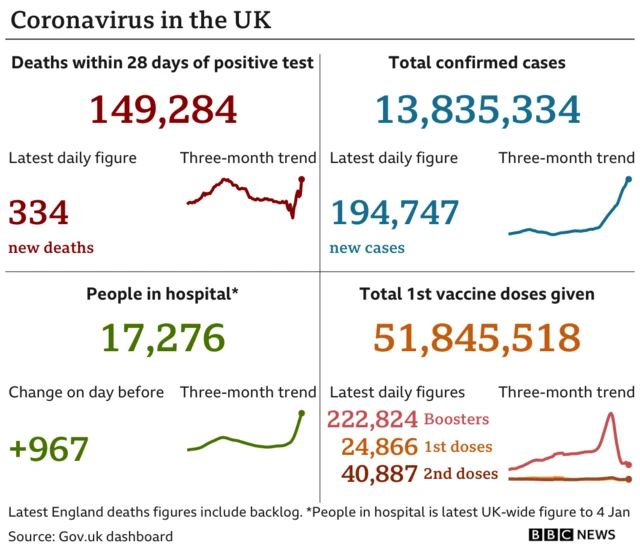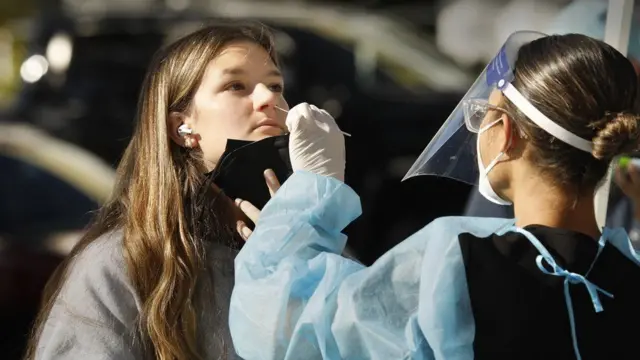That's all for nowpublished at 17:27 GMT 5 January 2022
Our rolling coverage of the Covid-19 pandemic is now closing for the day - the page will be back on Thursday morning.
You can read about the changes to England's travel rules here, the changes to PCR tests across the UK here, and the changes to self-isolation rules for cases and contacts in Scotland here.
The latest UK data is here - and a snapshot is below. Thanks for reading.





